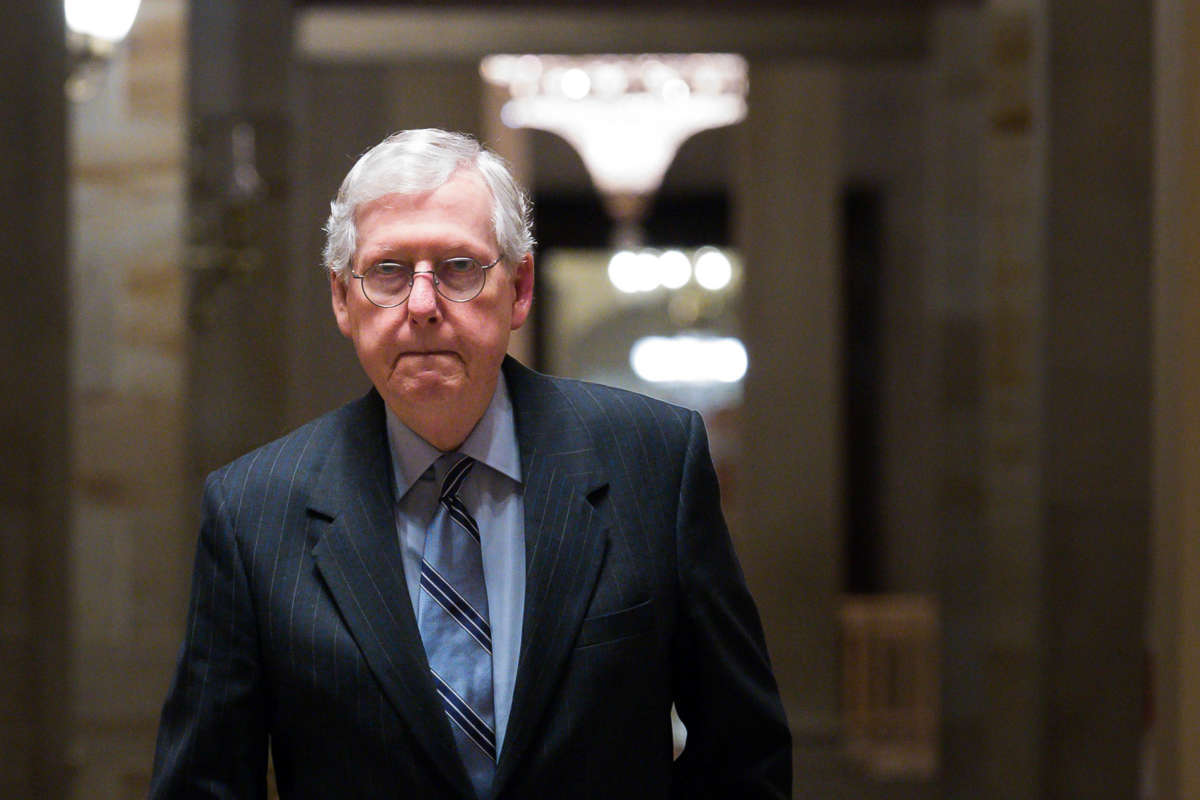If Republicans make good on their threats to allow the U.S. to default on loan payments after refusing to raise the debt ceiling, economists warn in no uncertain terms that a subsequent economic downturn could be disastrous and “cataclysmic” if Congress reaches a debt impasse.
A new analysis by Moody’s Analytics found that if Republicans shoot down an attempt to raise the debt ceiling and lawmakers enter an extended period in which they can’t agree on how to avert a government shutdown, it could trigger economic conditions similar to the Great Recession in 2008.
Moody’s Analytics chief economist Mark Zandi and assistant director Bernard Yaros wrote that this scenario would lead to the loss of nearly 6 million jobs in the U.S. It would also cause unemployment to surge from about 5 percent to 9 percent and household wealth to plummet by $15 trillion. Even after the government reopened, it would have permanent consequences like spiking mortgage and other borrowing rates, they warn in the report.
“This economic scenario is cataclysmic,” Yaros and Zandi said. “[T]he downturn would be comparable to that suffered during the financial crisis.”
Even a short government shutdown could “upend” global markets and the economy, which is still fragile from the pandemic — and even if the debt default and shutdown are swiftly resolved, the resulting higher interest rates on Treasury bonds would still have lasting, generational effects, Yaros and Zandi wrote.
The report’s authors are critical of the entire process to raise the debt limit. “The original intent of the debt limit was to be a forcing mechanism on lawmakers to remain fiscally disciplined. It has failed at this,” the report reads. “Instead, it has become highly disruptive to the fiscal process.”
Currently, if lawmakers fail to raise the debt limit, the Treasury Department wouldn’t be able to pay debts. The agency would be forced to either default on the debts, which Moody’s estimates would come due around October 20, or pay the $20 billion it owes that day to Social Security recipients. If the shutdown continued further, the Treasury would be forced to make other similar decisions.
Treasury Secretary Janet Yellen has also warned of high stakes if the U.S. has to default, which she says would be unprecedented. “Doing so would likely precipitate a historic financial crisis that would compound the damage of the continuing public health emergency,” she wrote Sunday.
The shutdown and default is an easily avoidable scenario in theory. Congress could simply come together and raise the debt ceiling, as it has done many times before, often under Republican leadership. In fact, under Donald Trump, Republicans added nearly $8 trillion to the national debt, the third largest addition to the national debt of any president.
However, now that a Democrat is in charge, Republicans have transformed back into deficit hawks. Sen. Mitch McConnell (R-Kentucky) is saying that he opposes allowing the U.S. to default, but is aligning Republicans to refuse to vote to raise the debt ceiling — which is essentially voting to allow the U.S. to default.
Bizarrely, McConnell pins the blame for this on Democrats. But Democrats, who have not indicated that they want a default to happen, have been scrambling to prevent that scenario. Only the GOP has said that they will vote to allow a default.
“McConnell seemingly could not care less” about creating financial chaos, wrote Truthout’s William Rivers Pitt. “His interest appears entirely political and utterly without shame: He wants his people to go into the 2022 midterms with ‘tax-and-spend liberals’ on every tongue. The same Republicans who aided the Trump administration’s wild financial giveaways to corporations and the wealthy now intend to use the economy itself against President Biden’s legislative attempt to address climate change and expand the social safety net, and all as a means of regaining the majority.”
If Republicans follow through with this plan, it would not be their first time throwing the country into financial chaos for political gain and obstruction. Under President Barack Obama, they caused major fights over the debt limit in 2011 and again in 2013, which created long-term negative consequences for the economy, the report’s authors noted.
“[T]he heightened uncertainty at the time reduced business investment and hiring and weighed heavily on GDP growth. If not for this uncertainty, by mid-2015, real GDP would have been $180 billion, or more than 1%, higher; there would have been 1.2 million more jobs; and the unemployment rate would have been 0.7 percentage point lower,” wrote Yaros and Zandi. “That is, if not for the political logjams in Washington over the debt limit after the financial crisis, the post-crisis economic recovery would have been meaningfully stronger.”
Join us in defending the truth before it’s too late
The future of independent journalism is uncertain, and the consequences of losing it are too grave to ignore. To ensure Truthout remains safe, strong, and free, we need to raise $33,000 in the next 2 days. Every dollar raised goes directly toward the costs of producing news you can trust.
Please give what you can — because by supporting us with a tax-deductible donation, you’re not just preserving a source of news, you’re helping to safeguard what’s left of our democracy.
